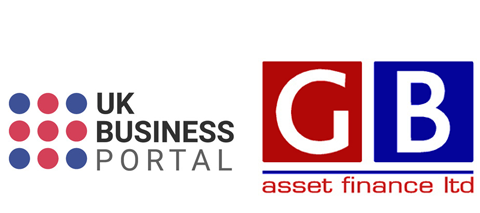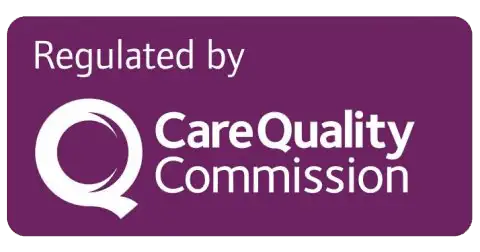Recovery is an ongoing process, and one of the biggest challenges people face is the risk of relapse. While relapse doesn’t mean failure, understanding the common triggers and how to manage them is essential for long-term sobriety.
At The Wellbourne Clinic, we know that overcoming addiction is about more than just stopping substance use—it’s about building a life where staying sober is easier than using. A key element of this involves being aware of your triggers and learning how to cope with them in a healthy way.
In this blog, we’ll explore the most common relapse triggers, how to recognise them and strategies to manage them effectively.

What Are Relapse Triggers?
A trigger is anything that causes cravings, emotional distress or old habits that can lead to substance use. Triggers can be internal (thoughts, emotions) or external (people, places, situations).
Relapse often happens in stages:
-
- Emotional Relapse – Feeling stressed, anxious, or not taking care of yourself can make you start thinking about using again.
- Mental Relapse – You might start romanticising your past drug or alcohol use, or you might try to convince yourself that “just one more time” wouldn’t hurt.
- Physical Relapse – This is when you actually use drugs or alcohol again.
By recognising these triggers early on, you can stop the relapse process before it escalates.
Common Triggers for Relapse & Managing Them
1. Stress & Anxiety
Why It’s a Trigger: A lot of people use substances as a way to get away from stress. The challenges of everyday life, pressure at work, money problems, or issues with relationships can make cravings worse.
How to Manage It:
-
- Practice mindfulness and relaxation methods like meditation and deep breathing.
- Create a stress management plan that includes healthy activities such as exercising or writing in a journal.
- Speak with a therapist or join support groups to deal with your feelings in a healthy way.
At The Wellbourne Clinic, we help people build emotional resilience by incorporating therapy, stress management techniques and coping strategies into recovery plans.
2. Negative Emotions (Depression, Guilt, Loneliness)
Why It’s a Trigger: Emotional pain often leads to self-medication, using substances to numb feelings of sadness, guilt or loneliness.
How to Manage It:
-
- Identify and process emotions through therapy instead of avoiding them.
- Stay connected with a support network (friends, family or recovery groups).
- Engage in positive activities that bring joy and give you a sense of purpose.
At The Wellbourne Clinic, we offer one-on-one and group therapy to help people navigate difficult emotions in a safe, supportive space.
3. People Associated with Past Substance Use
Why It’s a Trigger: Old drinking or drug-using friends may not support sobriety and can create pressure to relapse.
How to Manage It:
-
- Set clear boundaries and distance yourself from unhealthy influences.
- Surround yourself with supportive, sober people.
- Get involved in support groups to make new, positive connections.
Here at The Wellbourne Clinic, we help people create a solid, healthy support network and offer ongoing aftercare to help them stay on track.
4. Certain Places or Situations
Why It’s a Trigger: Bars, parties, concerts, or even familiar neighbourhoods can bring back powerful memories of past substance use.
How to Manage It:
-
- If you can, it’s best to avoid places that might make you want to use, particularly when you’re just starting out in recovery.
- If you do go to an event where drugs or alcohol are around, make sure you’ve got a friend who’s also sober to support you.
- Have an exit strategy – If cravings hit, be prepared to leave immediately.
5. Overconfidence in Sobriety
Why It’s a Trigger: Feeling “cured” can lead to risky decisions, such as skipping meetings or testing self-control.
How to Manage It:
-
- Stay engaged in aftercare (therapy, meetings, check-ins).
- Remind yourself that addiction is something you manage over time, and keeping it under control is what matters most.
- Keep working on yourself through therapy, activities you enjoy and sticking to healthy habits.
6. HALT: Hungry, Angry, Lonely, Tired
Why It’s a Trigger: HALT stands for four emotional states that can make someone more likely to experience a setback. Overlooking basic self-care can result in emotional distress, leading to cravings.
How to Manage It:
-
- Check in with yourself daily – Are you feeling hungry, angry, lonely, or tired?
- Prioritise physical health – Eat well, get enough sleep and exercise.
- Practice emotional self-care – Build relationships and find healthy ways to deal with anger.
At The Wellbourne Clinic, we integrate holistic wellness approaches to ensure people develop balanced lifestyles that support recovery.
7. Celebrations and the “Just One” Mentality
Why It’s a Trigger: Special occasions like weddings, birthdays or promotions, can trigger the thought, “I deserve just one drink.”
How to Manage It:
-
- Remind yourself that ‘just one’ often leads to more.
- Choose to go to events where there’s no alcohol or bring along someone who’s also staying sober.
- Find new ways to celebrate, like traveling, taking time for self-care, or having meaningful experiences that don’t involve drinking.
How The Wellbourne Clinic Supports Relapse Prevention
At The Wellbourne Clinic, we understand that recovery is an ongoing process. Our comprehensive approach to relapse prevention includes:
-
- Personalised Relapse Prevention Plans – Identifying your unique triggers and strategies to manage them.
- Cognitive-Behavioural Therapy (CBT) – Helping people change harmful thought patterns.
- Peer Support & Group Therapy – You’ll connect with others who understand what you’re going through, building a solid support system of people who are also sober.
- Holistic Therapies – Incorporating mindfulness, stress management and wellness practices.
- Aftercare & Continued Support – Ongoing guidance even after completing treatment.
We believe that with the right tools, support and mindset, lasting recovery is possible.
Stay Prepared, Stay Strong
Relapse is not a sign of failure—it’s a challenge that can be overcome with awareness, preparation and support. By recognising common triggers and learning how to manage them, people can take control of their recovery journey.
At The Wellbourne Clinic, we’re here to equip you with the skills and strategies needed for long-term success.
If you or a loved one is struggling with addiction, don’t wait—reach out to us today and take the next step toward lasting recovery.









